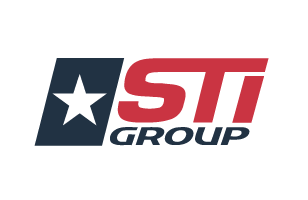The boiler is one of the most important components of many different industrial operations, and it’s critical that it runs smoothly. Thus, ensuring boiler efficiency is also a top priority for most industrial companies. Energy costs are directly linked to the efficiency of the boiler with inefficient boilers becoming progressively more and more expensive to maintain. Additionally, older, struggling boilers may be more prone to pollution and lead to violation with emissions guidelines. Fortunately, there are a few ways that a boiler system can be made to improve its efficiency, function with less fuel, and reduce operating costs.
Regular Boiler Maintenance
One major source of inefficiency in a boiler is aging equipment. Older boilers tend to be in worse condition than newer ones, and consequently run less efficiently. One of the best ways to prevent this problem is by ensuring that the boiler is maintained regularly and in accordance with manufacturer guidelines. This keeps everything running smoothly and efficiently.
The Reuse of Heat
Another significant source of inefficiency is heat loss. If the heat produced by burning fuel isn’t being used, it’s wasted. One simple way to prevent heat waste is by using the heat emitted during blowdown. A blowdown heat recovery unit can capture and reuse this heat, reducing the amount of fuel required later on.
An economizer is another useful device that operates on a similar principle. By recovering heat and reusing it later, an economizer can boost efficiency by nearly 8%. Standard, condensing, or flash economizers are all good options, although the best kind for a specific boiler will depend on factors such as fuel type, boiler model, and operating conditions.
Treatment of the Water
Treating the water properly is an important step in ensuring boiler efficiency. If there are impurities or particulates in the water, then the internal tubes of the boiler can become clogged, heat transfer ability may be lost, and efficiency will often decline. A deaerator or filtration system can help prevent this from happening.
Optimization of Combustion
Combustion efficiency is a major component of overall operating ability. In theory, a perfect ratio of fuel to air will maximize combustion for a given amount of input, although since conditions are never perfect in the real world a slight amount of excess air is necessary. If there is too much excess air, however, heat will be lost via flue gas flow, and if there is too little, then not all of the combustibles will be completely burned. Personnel in charge of boilers should determine the exact amount of excess air that is required for peak efficiency. Installing an oxygen sensor or transmitter will allow for this amount to be monitored and optimized.
Reduction of Cycling
Upgrading a boiler with a high turndown burner is another way to improve efficiency. This can reduce on and off cycles, decreasing warmup time and thus fuel use. Cycles can also be reduced using careful operational planning.
Improving the Feed System
Boiler efficiency doesn’t just involve the boiler itself. The feed system can also improve the overall output. Exchangers can be used to preheat feedwater, ensuring that the boiler has less work to do. Another good step is to put variable speed drive controls on the feed pumps, so that the motor will not run above the required speed at any given moment. This saves energy by allowing the system to be fine-tuned.
Coordination with Multiple Boilers/
In operations requiring multiple boilers, the machines should be optimized to work in tandem without using energy redundantly. By integrating lead and lag, employees can get boilers to operate in sync to match overall system load. Additionally, parallel positioning can also boost efficiency.
Upgrades and Retrofits
Finally, replacing or retrofitting an old boiler might be the best way to reach efficiency targets. STI Group offers a wide variety of boiler services to industrial clients, including repair, replacement, maintenance, and retrofits. Industrial boilers are one of the largest consumers of energy in a given facility, but this consumption can be reduced with smart planning. Let us help you increase the efficiency of your industrial boiler.

